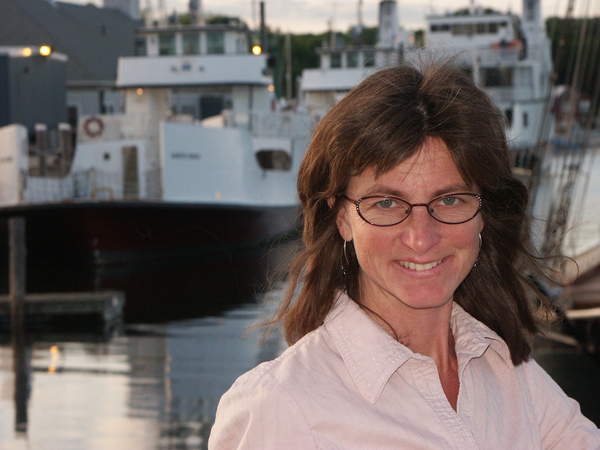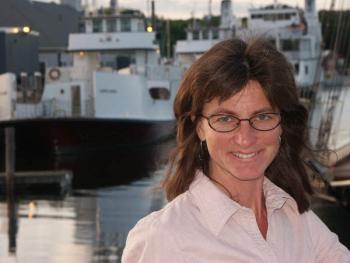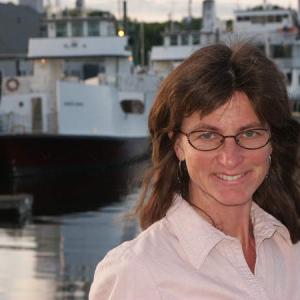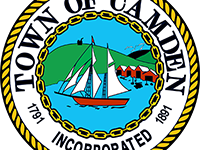Lizzie Dickerson: The delicate balance of harvesting elvers
AUGUSTA — I don't even know where to begin. I guess I should give you a rundown on the life cycle of the creature, the laws concerning harvest, and the bills in front of us today, March 13, at Marine Resources. The fact that ASFMC, which stands for Atlantic States Marine Fisheries Association, has said that the stock is depleted, and that we must keep our licenses in Maine within a certain limit, and our gear limited to a certain number of pieces, because Maine falls under the jurisdiction of a federal management plan within ASFMC, who will decide, in May, whether we are falling within their guidelines and therefore the fishery can stay open.
I could tell you that we are hearing a bill that would cap the Passamaquoddy nation's licenses. That the Maliseet, MicMac, and Penobscot fishing license issues are also being heard. That hundreds of people have lined into the room from all the nations of Maine. That we are also hearing a bill that would limit gear to one dip net only, to encourage more individuals to get into the game, because the number of pieces of gear would be reduced enough to issue more licenses and stay within ASFMC compliance. That bill was soundly defeated, and well, I think.
I could tell you about the hours of public testimony, the occasional tension between the tribes and the non-tribal elver fishers.
But, what you really need to know is that elvers are selling somewhere in some far off part of the world for more than $2,000 dollars. And that is really why everyone wants a piece of the action. Which is good, but, also brings out some of the not good. And it is our job on Marine Resources to make deliberative decisions on sound resource management while weighing the potential of economic disaster for the many fisherman and women who crowd the room- some who are disabled, some who are missing truck payments, all who are struggling. Tribal peoples who are making a barely subsistence living by "wrinkling", which is the practice of picking periwinkles in the shores. Fishing is all anyone in this room has, and I feel entirely conspicuous sitting in a suit and holding this enormous responsibility, though at the end of the day, I feel we all did come together- suits and boots- and we did get to the best solution we could. That's the beauty of the legislature and the Democratic process- and people have really turned out. It takes a lot to get fifty people to a Rockland City Council meeting, but here, there are probably a couple hundred people from all corners of Maine.
Air freight really has made it possible for all of these species to be flighted in to other places. Lobsters to Belgium. Elvers to the Orient. And it is our job on Marine Resources to find a way that human interest can balance with the needs of the environment, so that we humans do not deplete the very resource that is bringing us our living. And, we don't really have the data on the life stage of the eel, the elver, that would inform our decision making to the point of complete confidence.
And that was, in the words of Dept. of Marine Resources head Patrick Kelliher, the dilemma upon the horns of which we were impaled. Elver season was due to open March 22, and we needed to make a considered decision to divvy up licenses and gear to all the competing interests in Maine in a way that kept us within ASFMC rules, and also made clear that this decision we were about to make was only for this one year, and would be revisited given the availability of more data, and more work at the ASFMC meeting in May, and many more conversations with the interests and particularly the tribes over the summer. The Passamaquoddy have begun work on a management plan, and that management plan and the DMR plans and rules need to have a summit of their own, considering that DMR enforces in the field right now, and any tribal enforcement and DMR enforcement would need to be coordinated.
At the end of the day, I feel that we did the best we could with the information we had to get the season started. I dug in deep trying to get to the bottom of the catch quota information, and discovered that there really isn't any clear way to distinguish between tribal and non-tribal catch rates in order to determine who is fishing what, though dealers are required record poundage bought. We tried to give everyone some of what they wanted, and protect the resource, and then see where we were next year.
It was a discouraging discussion in many ways, and I feel that one cannot both protect a resource and allow fishing without adequate data. On this we are all agreed. But, there are times when we see the underbelly of human fear of lack of material well-being, and this was one of those times. It was my first time encountering the tension in our state between tribal and non-tribal peoples. It just made me really sad. Of course, you know that I am the eternal optimist, and that I believe that anything is possible, but there are times that our character defects as humans are there to see, and there to be worked on. Ever onward.
Rep. Elizabeth Dickerson, D-Rockland, serves in the State House for District 47, which includes all of Rockland and part of Owls Head. She serves on the Marine Resources Committee. She is also a member of the Rockland City Council. She works as a computer science teacher at Oceanside High School.
Event Date
Address
United States


























